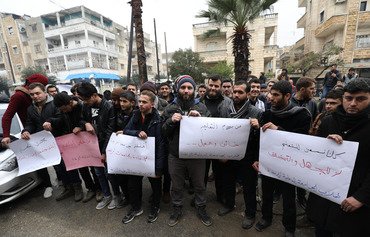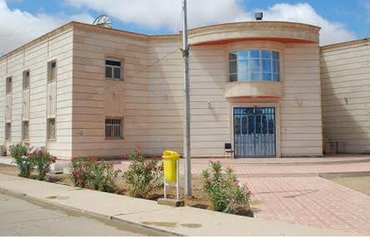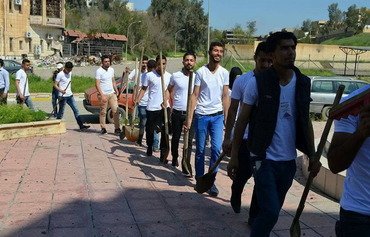Recent events in the southern Iraqi province of al-Diwaniya indicate growing impatience among the Iraqi public towards Iran’s interference in their country’s affairs, analysts tell Diyaruna.
A protest erupted on April 10th during an event at the University of al-Qadisiyah featuring the leader of Iran-backed militia Asaib Ahl al-Haq.
As Qais al-Khazali denounced the interference of neighbouring countries and the world in Iraq’s affairs, failing to mention the Iranian role, hundreds of students broke into a chant of "Iran out, out… Baghdad free, free".
This infuriated al-Khazali’s guards, who clashed with the students and then fired into the air to disperse them.
"The dispute between the two sides started with words and developed into fist fights inside the events hall," al-Diwaniya provincial council deputy head Haider al-Shammari told Diyaruna.
The university hall had been rented from the university by the popular mobilisation forces, who had obtained permission to hold a carnival.
That was a "mistake", al-Shammari said, "since it allowed military displays to enter the university campus, which is absolutely not permissible".
"After the confrontation, the students left the events hall and organised a demonstration in which between 200 and 300 students repeatedly chanted several slogans, some of them anti-Iranian, and shots in the air were heard that were aimed at dispersing the demonstrators," he said.
A team from the Prime Minister’s office is currently investigating these events and their repercussions, he said, noting that there are indications that the situation has calmed down since the initial escalation.
Wider impatience with Iran
Later on the same day as the university protest, the Iraqi Communist Party’s headquarters in al-Diwaniya was attacked with two bombs that caused physical damage to the building.
In a statement, the party blamed the attack on what it described as "outlaws", calling on the security forces to "track down those involved and protect lives and property from abusers".
Some media outlets linked the attack to Asaib Ahl al-Haq, reporting that the son of a communist party official had been an instigator in the university protest.
The events at the University of al-Qadisiyah are a sign of wider popular impatience in Iraq towards Iranian interference, said Iraqi Centre for Strategic Studies researcher Yahya al-Kubaisi.
"The Iranian issue is very problematic in Iraq, especially politically," he told Diyaruna.
"It is clear that parts of the Shia community are impatient towards Iran’s unprecedented intrusion into Iraq," al-Kubaisi said.
Universities must remain neutral
Dragging universities into the political fray and allowing them to become a place for electoral and partisan campaigning or armed displays is a serious problem, political analyst Ahmed al-Sharifi told Diyaruna.
"What happened in the University of al-Qadisiyah proves there is a major failure, which we have repeatedly warned of when we said that the university is an educational institution and should remain so and steer clear of any influences," he said.
"Throwing academic institutions into tensions and disputes and militarising them is an issue that threatens the prestige and structure of all institutions of the state, in addition to its negative effects on the general security and educational situation in the country," he added.
Al-Sharifi stressed the importance of "controlling the rhythm of the political movement and not pushing problems towards campus areas".
In a statement, the University of al-Qadisiyah expressed its regret over the events of April 10th and stressed that it "will continue to be a scientific platform that keeps out of political rivalries, in the service of society and the state".
"Universities will not be a part of political calculations," Iraqi Minister of Higher Education Abdul Razzaq al-Issa said in a statement. "They will not be allowed to be used at the expense of the public interest."
University leadership that "does not maintain the university’s independence" will be reconsidered, he added.

![University of al-Qadisiyah students protest in February to demand better services on campus. [Photo from the University of al-Qadisiyah Facebook page]](/cnmi_di/images/2017/04/25/7734-Iraq-qadisiya-protest-600_384.jpg)






